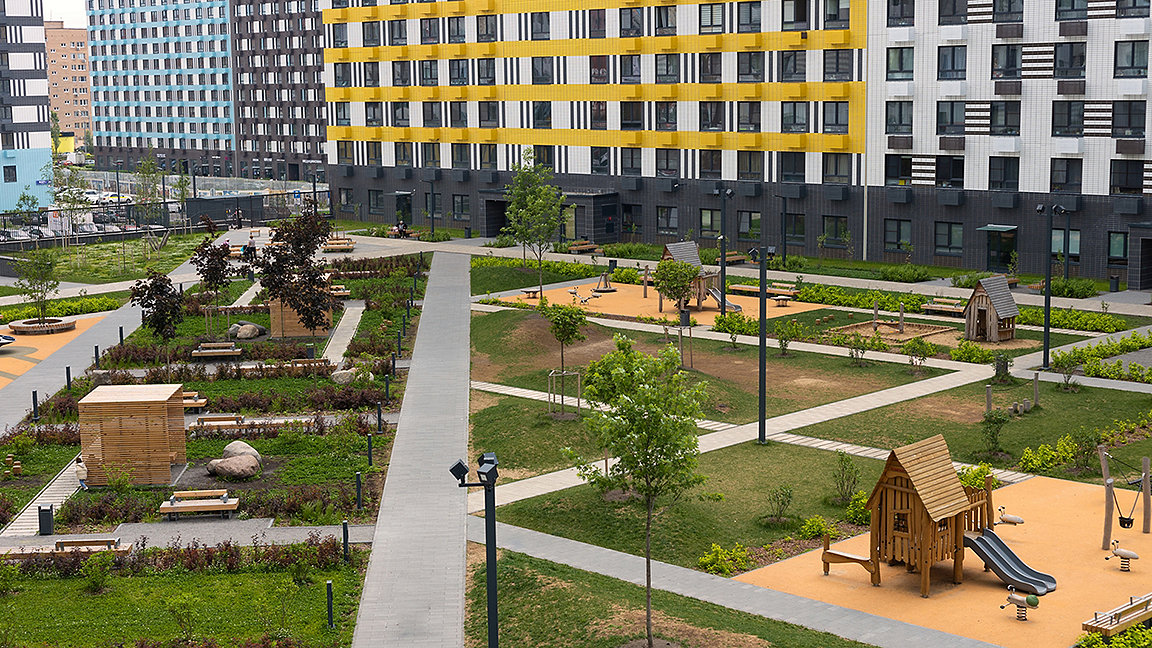
The Public Services (Social Value) Act 2012 brought into focus a practice that had in fact been part of the tender and procurement process for some time, albeit one that was deployed haphazardly.
It was a reasonable move: to formalise a process that could add value to the environment and communities in which we live and work – and demonstrated corporate social responsibility and commitment to the public service ethos and standards set by such organisations as RICS.
But has formalising the process taken a little shine off value? Clear guidance has its benefits but prescriptive boundaries could place some businesses at a disadvantage. Has social value come to mean so much more than was first intended?
No one has all the answers. But most property professionals would have plenty to say on the subject. Social value remains a nebulous term.
Demonstrating value across different sectors
Bruton Knowles works on a vast array of projects for both public and private sector clients. These range from helping large firms identify suitable sites for specific investments, to conducting land negotiations and compulsory purchase order work for local authorities seeking plots for strategic developments.
The company also manages commercial property on behalf of clients, providing advice on issues such as acquisitions and disposals, estate management, rental incomes, and asset valuations. Considerations around what is described as social value are at the heart of all such projects. Being funded by the taxpayer, public-sector clients in particular need to show that their procurement processes and wider initiatives reflect the communities they serve.
From our perspective, this means demonstrating that we operate in a fair, inclusive and ethical way, that we are concerned about reducing carbon, and that we are committed to helping clients operate in the most cost-effective and sustainable way. This is simply good and responsible practice.
RICS Rules of Conduct also state in behaviour 3.10: 'Members and firms, when advising clients about projects, encourage solutions that are sustainable in that they minimise harm and deliver balanced economic, social and environmental benefits.'
The sustainability factor
For some stakeholders, social value is about whether construction materials are ethically sourced. Others see it as a means by which employment opportunities can be created for local labour markets. Many view it as the drive to minimise the environmental impact of buildings over their life cycles.
The latter is certainly at the forefront of people's minds, with the ongoing debates sparked by COP26 last year. So 2022 needs to be the year that sustainability decisively becomes part of all mainstream business considerations.
As part of this, social value must be better defined. With supply chains becoming ever-more intricate, greater transparency is also key. It is no longer acceptable to pass the buck further down the line. From a procurement perspective, bidders are increasingly being asked to demonstrate their carbon credentials when providing a service, particularly for public-sector clients. And we welcome the wider debate on value leading to better awareness of policy and practice; the Construction Innovation Hub’s Value Toolkit is a good example.
There is a growing expectation for firms such as ours to be measured against key performance indicators (KPIs) in social value and sustainability, so we must find new ways as a business to highlight our commitment to reducing carbon.
We always endeavour to demonstrate our approach clearly to our customers. For example, when we provide asset valuations, we assess the extent to which our staff can use cleaner modes of transport for all necessary travel.
Planning carbon efficiencies in at the outset of a project means we can also help our public-sector partners play their role in achieving the UK government’s 2050 net-zero target. Social value is slowly but surely becoming a core strategic objective for public bodies, and we see ourselves supporting this process.
However, there is a lag across the private sector, where cost is still king for many developers. They continue to view social value as an optional extra, because economic goals continue to be the main considerations. It is going to take an immense shift in mindsets to encourage more creative thinking about how a building is not just bricks and mortar, and can contribute something far greater.
An uneven playing field for SMEs?
We recently reviewed social value criteria across our 2020 and 2021 tenders, from large frameworks through to requests for quotes (RFQs), to understand the number of times it was required and any changes over that period.
Unsurprisingly, we found there was an increase. In 2020, 46% of tenders included social value, and the figure rose to 61% in 2021. But we also saw instances where net zero statements were required on RFQs. The overall picture remains inconsistent.
For some, the social value requirement of any tender process tips the scales in favour of the big corporate suppliers. This is simply because they can be seen to offer generally more, backed by a dedicated resource.
Small to medium-sized enterprises (SMEs) may have as much to offer in terms of mentoring a local apprentice or providing a specialist skill set, but they cannot compete in terms of monetary investment. This simply becomes an erosion of fee for those that can least afford it.
Value is not just about cost, but of course the evaluation process at tender stage is then more complex. In future, it will need to be measured on scale and legacy in a more nuanced way.
If we are bidding for a valuation contract, which will be completed in three months or even just six weeks, can we really bring any level of social value to the table? Surely it is far better to make a further commitment to a community project that’s already under way where we can do more, and do better?
Social value is about leaving a mark long after the construction process is completed, so that properties become assets for the communities they serve. It is about adding value to the entire process – from design, procurement, construction, operation and disposal – without rendering the cost of building something unaffordable. That is a fine line to tread.
'For some, the social value requirement of any tender process tips the scales in favour of the big corporate suppliers'
Complex matrix or lasting legacy?
We have certainly seen – and over the past 18 months particularly – that more complex matrices have been added to many tenders to measure and score social value commitments: from extended equality and diversity training for all project staff to initiatives to address the homeless problem in an area. Specific actions and commitments that have to be aligned with themes, such as growth or people, and set against measures or units that count up pounds spent and numbers of people to benefit. Previously, a straightforward statement of intent sufficed.
While we welcome this level of detail, a flexible approach is needed. Surely it is acceptable for smaller, shorter contracts to offer a social value statement covering the business as well as evidence of its practical and charitable credentials?
Social value statements will, of course, depend on the type, nature and location of the business supplying them. For example, if a firm operates in a deprived area, education and mentoring for young adults may be the focus of that statement, because that resonates most with the firm.
Reasonable, proportionate and common-sense approaches to social value have to be recognised. Equally, there must also be a more open approach in showing how best you can help. This may result in a better outcome all round. The legacy of a commercial commitment and its lasting impacts must be monitored long after the operational timescale for the contract has expired.
Shifting the focus
To summarise, change can be good and value in all forms can be positive. But it is a complex area.
The focus must shift to more lasting outcomes and measurable impacts alongside reasonable, proportionate input and investment. So perhaps that’s what the scoring matrix needs to focus on next.
James Bailey FRICS is managing partner at Bruton Knowles
Contact James: Email
Related competencies include: Planning and development management, Sustainability


%20AM%20AS%20social%20value%20editorial%20resized.jpg)